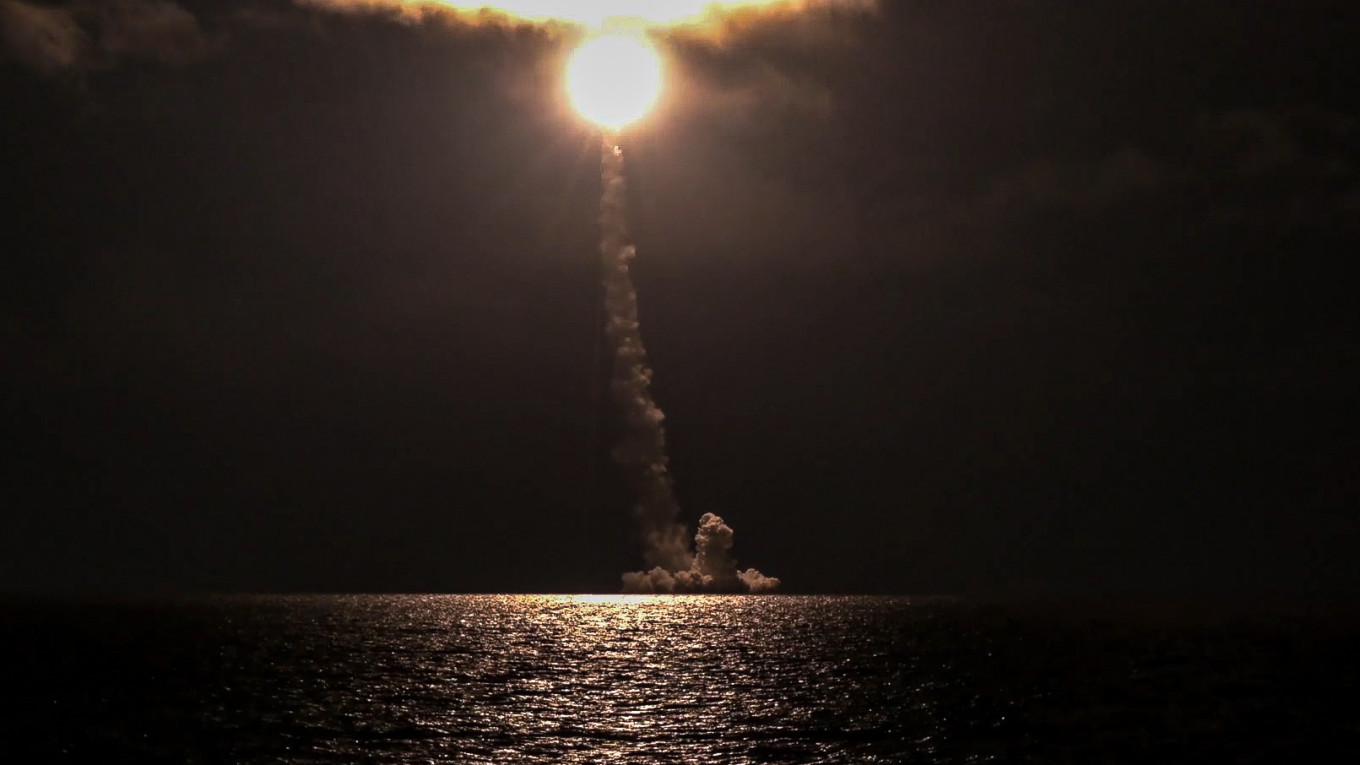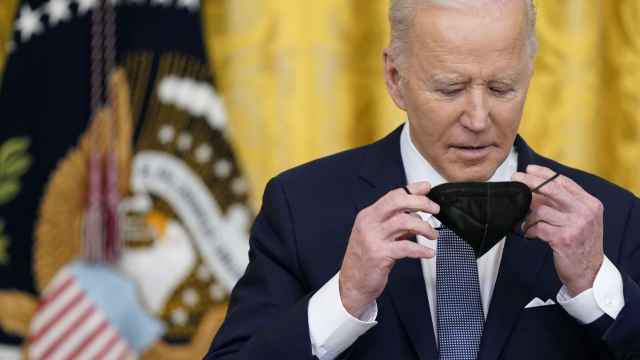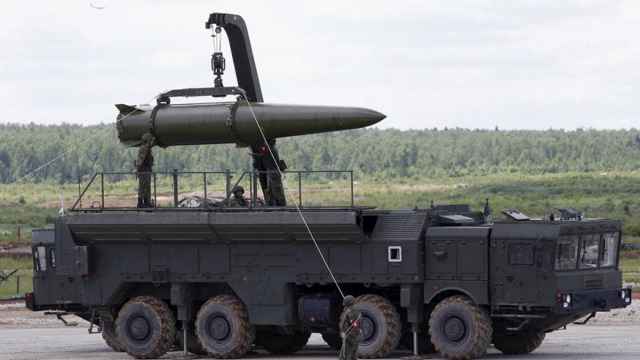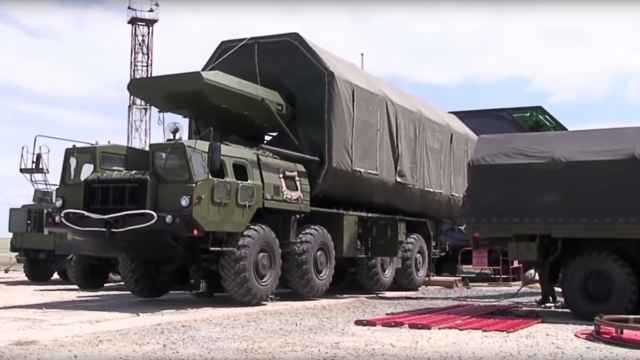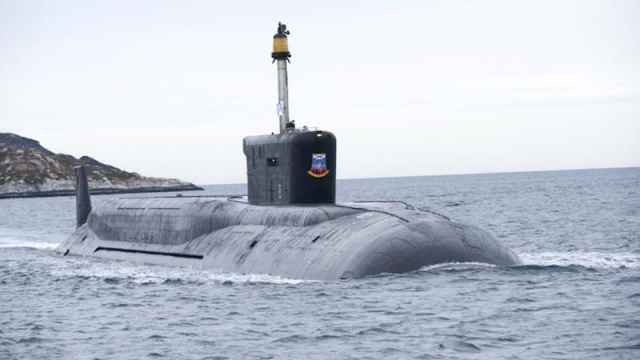Russia said Sunday it had successfully test-launched an intercontinental ballistic missile capable of carrying nuclear warheads from one of its submarines.
The launch of the "Bulava" missile, the first in just over a year, comes as Russia ramps up nuclear rhetoric since revoking its ratification of a key nuclear test ban treaty.
"The new nuclear-powered strategic missile submarine cruiser Emperor Alexander the Third has successfully launched the Bulava sea-based intercontinental ballistic missile," the Defense Ministry said.
It said it fired the under-sea missile from an undisclosed location in the White Sea on its northwest coast, to a target thousands of kilometers away on the far eastern Kamchatka peninsula.
"The missile firing took place in the normal mode from an underwater position," it said, adding: "The missile heads arrived at the designated area at the appointed time."
The 12-metre-long Bulava missile was designed to be the backbone of Moscow's nuclear triad and has a range of over 8,000 kilometers (close to 5,000 miles).
The West has accused Moscow of using reckless nuclear rhetoric since it launched its offensive against Ukraine last February.
President Vladimir Putin earlier this week signed a law revoking Russia's ratification of the Comprehensive Nuclear Test Ban Treaty, a move strongly criticized by the United States.
The 1996 treaty outlaws all nuclear explosions, including live tests of nuclear weapons, though it never came into force because some key countries — including the United States and China — never ratified it.
A Message from The Moscow Times:
Dear readers,
We are facing unprecedented challenges. Russia's Prosecutor General's Office has designated The Moscow Times as an "undesirable" organization, criminalizing our work and putting our staff at risk of prosecution. This follows our earlier unjust labeling as a "foreign agent."
These actions are direct attempts to silence independent journalism in Russia. The authorities claim our work "discredits the decisions of the Russian leadership." We see things differently: we strive to provide accurate, unbiased reporting on Russia.
We, the journalists of The Moscow Times, refuse to be silenced. But to continue our work, we need your help.
Your support, no matter how small, makes a world of difference. If you can, please support us monthly starting from just $2. It's quick to set up, and every contribution makes a significant impact.
By supporting The Moscow Times, you're defending open, independent journalism in the face of repression. Thank you for standing with us.
Remind me later.


